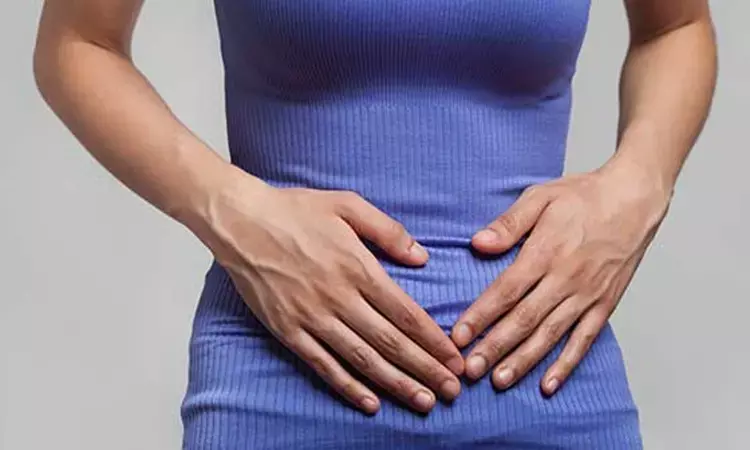- Home
- Medical news & Guidelines
- Anesthesiology
- Cardiology and CTVS
- Critical Care
- Dentistry
- Dermatology
- Diabetes and Endocrinology
- ENT
- Gastroenterology
- Medicine
- Nephrology
- Neurology
- Obstretics-Gynaecology
- Oncology
- Ophthalmology
- Orthopaedics
- Pediatrics-Neonatology
- Psychiatry
- Pulmonology
- Radiology
- Surgery
- Urology
- Laboratory Medicine
- Diet
- Nursing
- Paramedical
- Physiotherapy
- Health news
- Fact Check
- Bone Health Fact Check
- Brain Health Fact Check
- Cancer Related Fact Check
- Child Care Fact Check
- Dental and oral health fact check
- Diabetes and metabolic health fact check
- Diet and Nutrition Fact Check
- Eye and ENT Care Fact Check
- Fitness fact check
- Gut health fact check
- Heart health fact check
- Kidney health fact check
- Medical education fact check
- Men's health fact check
- Respiratory fact check
- Skin and hair care fact check
- Vaccine and Immunization fact check
- Women's health fact check
- AYUSH
- State News
- Andaman and Nicobar Islands
- Andhra Pradesh
- Arunachal Pradesh
- Assam
- Bihar
- Chandigarh
- Chattisgarh
- Dadra and Nagar Haveli
- Daman and Diu
- Delhi
- Goa
- Gujarat
- Haryana
- Himachal Pradesh
- Jammu & Kashmir
- Jharkhand
- Karnataka
- Kerala
- Ladakh
- Lakshadweep
- Madhya Pradesh
- Maharashtra
- Manipur
- Meghalaya
- Mizoram
- Nagaland
- Odisha
- Puducherry
- Punjab
- Rajasthan
- Sikkim
- Tamil Nadu
- Telangana
- Tripura
- Uttar Pradesh
- Uttrakhand
- West Bengal
- Medical Education
- Industry
Nonmesh surgery for stress urinary incontinence has higher risk of reoperation at 10 years: Study

UK: Women with stress urinary incontinence (SUI) treated with retropubic colposuspension versus mesh sling insertion or autologous sling procedures experience a higher risk of reoperation at 10 years after surgery, shows a recent study. The study appears in the American Journal of Obstetrics and Gynecology.
Safety and effectiveness of surgical treatments for stress urinary incontinence have been always debatable. Controversy about the use of synthetic mesh sling insertion resulted in an increase use of retropubic colposuspension and autologous sling procedures. However, there is a need for comparative evidence on the long-term outcomes from these procedures.
Considering the above, Patrick Muller, London School of Hygiene & Tropical Medicine, London, United Kingdom, and colleagues aimed to compare the risk of reoperation at 10 years after operation between women treated for stress urinary incontinence with retropubic colposuspension, mesh sling insertion, and autologous sling procedures.
For this purpose, the researchers used records of admissions to National Health Service hospitals to identify women who had first-time stress incontinence surgery between 2006 and 2013 in England. They then assessed the first incidence of following outcomes: further stress incontinence surgery, surgery for a complication (either mesh removal, prolapse repair, or incisional hernia repair), and any reoperation (either further stress incontinence surgery, mesh removal, prolapse repair, or incisional hernia repair).
They calculated the cumulative incidence of each of these outcomes up to 10 years after surgery with death being considered as a competing event. The reoperation hazard ratios was estimated for the different initial surgery types with adjustments for patient characteristics and concurrent prolapse surgery or hysterectomy.
The analysis included 2262 women treated with retropubic colposuspension, 92,524 treated with mesh sling insertion, and 1234 treated with autologous sling.
Key findings of the study include:
· The cumulative incidence of any first reoperation at 10 years was 21.3% after retropubic colposuspension, 10.9% after mesh sling insertion, and 12.0% after autologous sling procedures.
· The women who had a retropubic colposuspension were significantly more likely to have a reoperation than women who had an autologous sling (adjusted hazard ratio for any reoperation: 1.79; for further stress incontinence surgery: 1.64; for surgery for complications: 1.89), whereas the women who had mesh slings had a similar hazard (for any reoperation: 0.90; for further stress incontinence surgery: 0.75; for surgery for complications: 1.11).
· A sensitivity analysis excluding the women who had concurrent prolapse surgery or hysterectomy produced similar results.
To conclude, women treated with retropubic colposuspension had nearly double the risk of any reoperation in the first 10 years after SUI surgery, versus women treated with a mesh sling insertion or an autologous sling procedure. The researchers therefore suggests that women considering surgical treatment for SUI should be provided with robust information on its long-term effectiveness and the risk of adverse events.
"However, these three procedures may have different severity of the conditions leading to reoperation, implying the need for long-term patient-reported outcome data to give a complete picture of the risks and benefits associated with each procedure," the authors wrote.
Reference:
Muller P, Gurol-Urganci I, van der Meulen J, et al. Risk of reoperation 10 years after surgical treatment for stress urinary incontinence: a national population-based cohort study. Am J Obstet Gynecol 2021;225:645.e1-14.
Dr Kamal Kant Kohli-MBBS, DTCD- a chest specialist with more than 30 years of practice and a flair for writing clinical articles, Dr Kamal Kant Kohli joined Medical Dialogues as a Chief Editor of Medical News. Besides writing articles, as an editor, he proofreads and verifies all the medical content published on Medical Dialogues including those coming from journals, studies,medical conferences,guidelines etc. Email: drkohli@medicaldialogues.in. Contact no. 011-43720751


